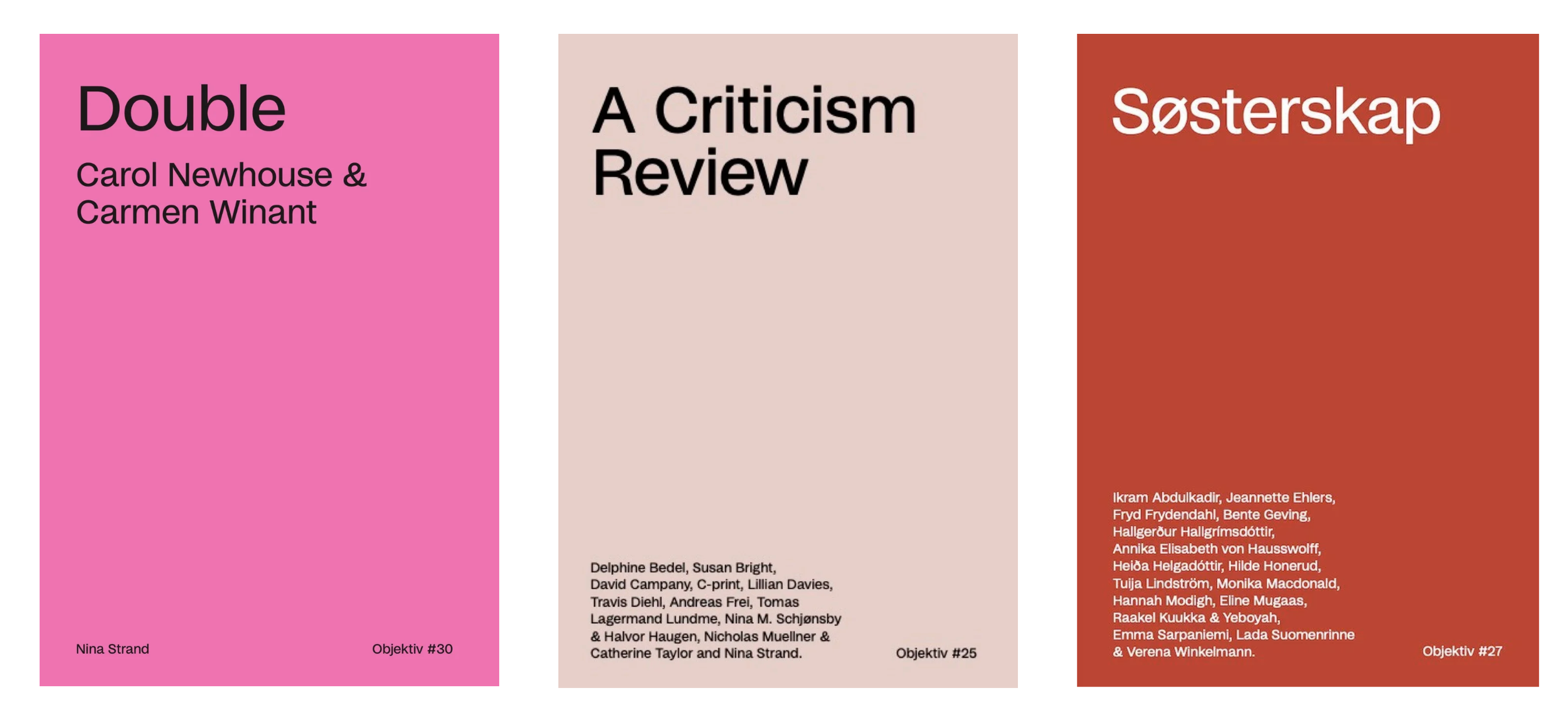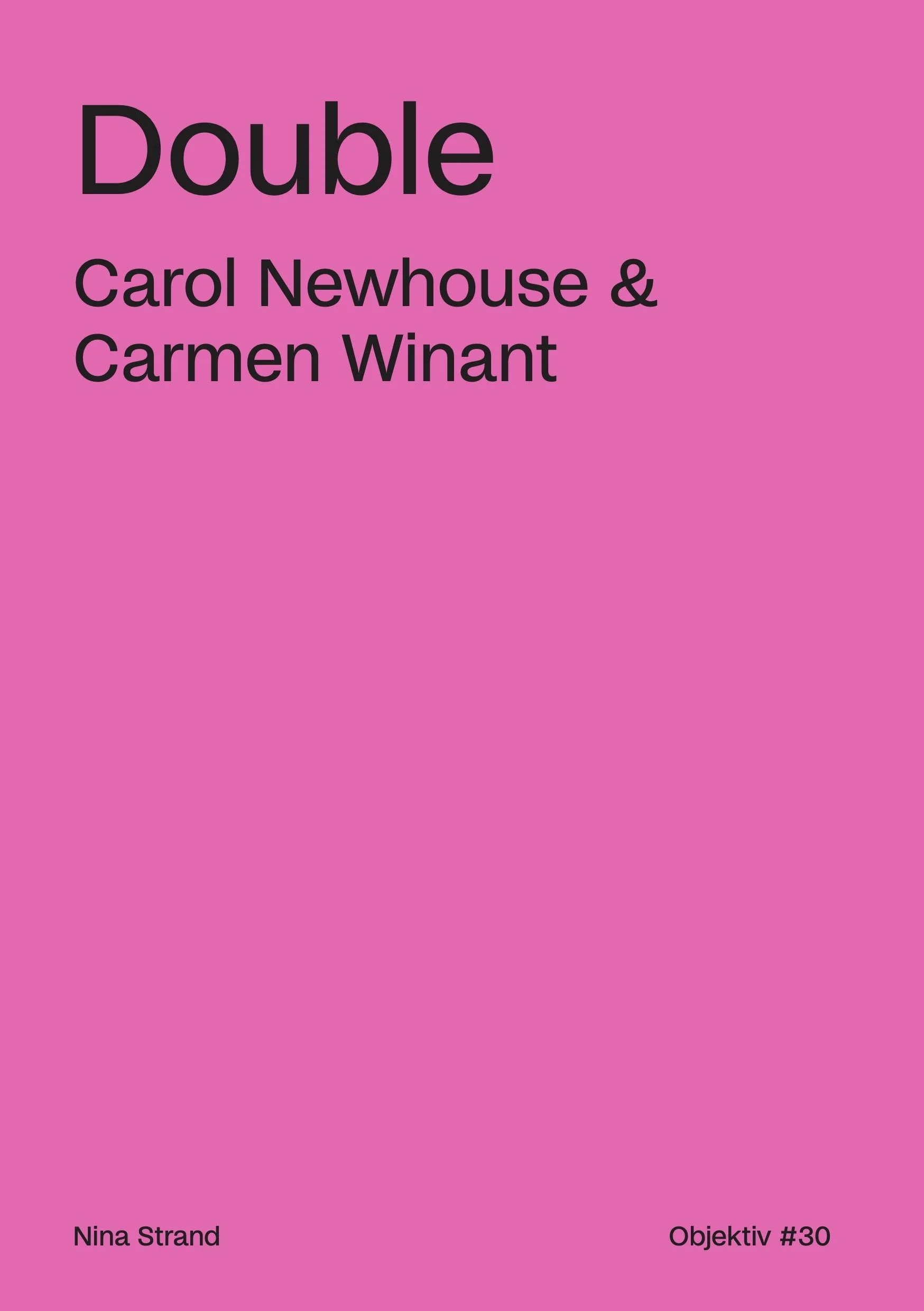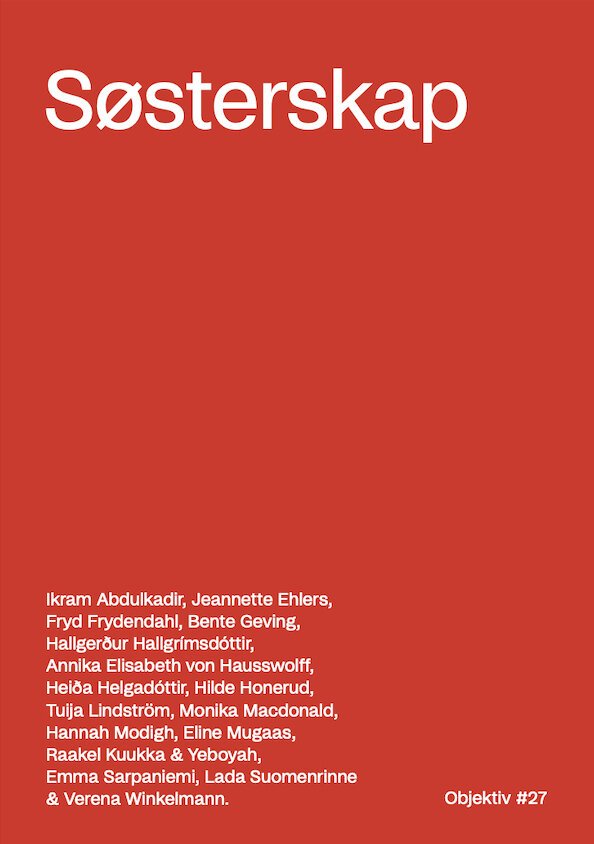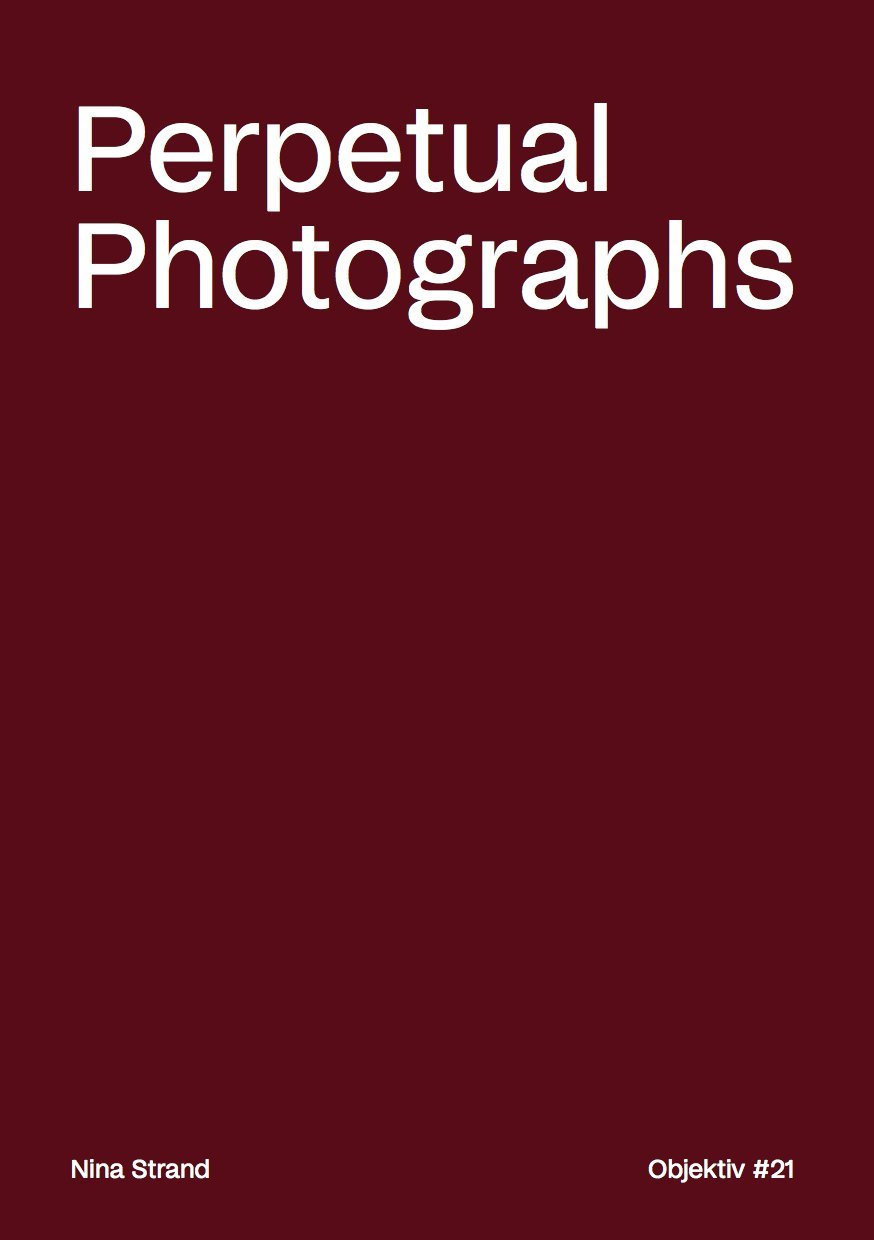
Objektiv Press & other books










Double accompanies the exhibition by Carol Newhouse and Carmen Winant at this year’s Les Rencontres d'Arles. Through her exploration of radical reinvention—especially within 1970s lesbian separatist communities—Carmen Winant connected with Carol Newhouse, co-founder of WomanShare. Over the course of a year, they engaged in a photographic dialogue: one shot a roll of film, sent it across the country, and the other re-exposed it using double exposure. Double invites us to consider how we reinvent ourselves and our histories through shared self-representation and interconnection. Taking a fulcrum in Newhouse’s archive, their work gives form to intergenerational relationships and feminist legacies, bringing past experimental photographic practices into the present.
A Criticism Review is a manifesto where different writers reflect on how we can make changes within the writing community, carving out new ideas about how to work and be published. Contributions from Delphine Bedel, Susan Bright, David Campany, C-print, Lillian Davies, Andreas Frei, Tomas Lagermand Lundme, Nina M. Schjønsby & Halvor Haugen.
Søsterskap (Sisterhood) brings together photographers of different generations from the Nordic countries whose works reflect the socio-political context of the welfare state. The interplay between photography and this social democratic model is here seen as a key factor in defining the rich and multifaceted panorama of camerawork from the region, spanning from the 1980s to today. This publication accompanies the 2023 exhibition Søsterskap—Contemporary Nordic Photography, invited as one of the main exhibitions for the Les Rencontres d’Arles.
Visual Wanderings. In April 2020, Objektiv initiated the online series Visual Wanderings, for which photographers from all over the world made art that responds to our new situation. The series ended in June 2021 and Objektiv #23: Visual Wanderings collects many of the contributions.
Perpetual Photographs takes as its inspiration the column, ‘On my Mind’, presented in the very first issues of Objektiv, where different people wrote about an image that they couldn’t stop thinking about. For this essay, Strand looks more closely at images, interviews, impressions that are still on her mind. Her essay contains quotes from artists such as Laure Prouvost, Frida Orupabo, Elle Pérez and in this way weaves a dialogue of many voices, instead of making a fixed statement, offering a wider picture of artistic practices.